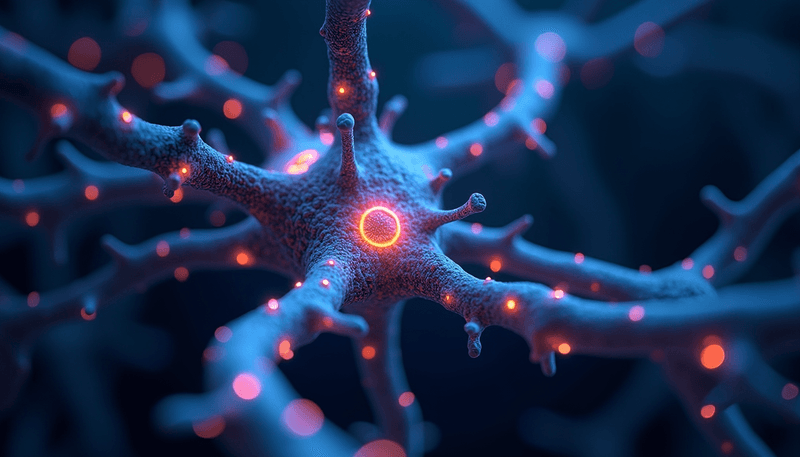Hormone Therapy Guards Women's Mental Health

The gentle whisper of estrogen in our bodies orchestrates far more than reproductive health - it's a powerful conductor of mental wellbeing, particularly during the complex symphony of menopause. A groundbreaking study reveals hormone therapy's protective effects on mental health during menopause, opening new possibilities for women navigating this significant life transition.
As someone who has personally witnessed the profound impact of hormonal changes through my work with women experiencing menopause, I find this research particularly compelling. The study followed 3,488 women using various forms of Menopausal Hormone Therapy (MHT) and uncovered fascinating insights about timing, effectiveness, and mental health protection.
The Window of Opportunity: Timing Is Everything
One of the most striking findings is the importance of timing when starting hormone therapy. The research shows that women who began MHT between ages 40-55 experienced significantly better mental health outcomes compared to those who started later. This creates what medical professionals call a "window of opportunity."
What if we thought about hormone therapy timing like planting a garden? Just as seeds need the right conditions to thrive, our bodies respond best to hormone therapy when initiated at the optimal time.
The science behind this timing is fascinating. During perimenopause (typically starting in our 40s), our estrogen receptors are still highly responsive. However, after prolonged exposure to low estrogen levels, these receptors begin to decline, making later intervention less effective. This explains why women who started MHT after age 56 didn't see the same benefits.
Practical Application:
- Track your menopause symptoms starting in your early 40s
- Discuss hormone therapy with your healthcare provider before age 50
- Don't wait for severe symptoms to seek treatment
Different Forms, Similar Benefits
The study revealed that most forms of hormone therapy - whether pills, patches, or combinations with different progestogens - showed similar effectiveness in supporting mental health. This is particularly encouraging because it means women have options to find what works best for them.
Think of hormone therapy options like choosing between different types of exercise - walking, swimming, or cycling. While they might have slightly different approaches, they all contribute to overall fitness. Similarly, different forms of hormone therapy can support mental wellbeing through various delivery methods.
Key Considerations for Different Forms:
- Oral medications showed consistent benefits
- Transdermal patches proved equally effective
- Combined hormone therapies (estrogen with progesterone) demonstrated positive results
Have you considered which form of hormone therapy might best fit your lifestyle and preferences?
The Brain-Hormone Connection
The research highlights the profound connection between hormones and brain health. Estrogen doesn't just affect hot flashes and night sweats - it plays a crucial role in:
- Neurotransmitter function
- Brain plasticity
- Oxidative stress protection
- Cognitive function maintenance
This explains why hormone therapy can have such significant effects on mental wellbeing. It's like providing your brain with the tools it needs to maintain optimal function during a time of significant hormonal change.
Understanding Your Brain's Needs:
- Recognize that mental health symptoms during menopause may be hormone-related
- Consider hormone therapy as part of a comprehensive mental health strategy
- Monitor cognitive changes and discuss them with your healthcare provider
How might understanding the brain-hormone connection change your perspective on menopause and mental health?
A Balanced Approach to Benefits and Risks
When considering hormone therapy, it's essential to weigh both benefits and potential risks. The study showed that while hormone therapy can offer significant mental health protection, timing and individual factors play crucial roles in its effectiveness.
Important Considerations:
- Personal and family medical history
- Current age and time since menopause onset
- Specific mental health concerns
- Other medications and treatments
Looking ahead, this research opens new possibilities for women's health care during menopause. It suggests that taking a proactive approach to hormone therapy could help maintain mental wellbeing during this significant life transition.
What steps will you take today to protect your mental health during menopause?
Remember, every woman's journey through menopause is unique. While this research provides valuable insights, working with healthcare providers to develop an individualized approach remains essential. Start the conversation early, stay informed about your options, and advocate for your mental health needs during this important life transition.

Olivia Rose Chen-Martinez
Olivia Rose Chen-Martinez is a seasoned health and wellness writer with a focus on women’s health issues, including PCOS, perimenopause, and holistic wellness. With a background in Journalism and Public Health from UC Berkeley, Olivia draws on over 15 years of writing experience to deliver empathetic, research-backed insights. Her work blends personal anecdotes and actionable advice, resonating with readers seeking accessible and trustworthy information. Based in Austin, Texas, Olivia is also a certified yoga instructor and a dedicated advocate for balanced, integrative approaches to women’s health.







